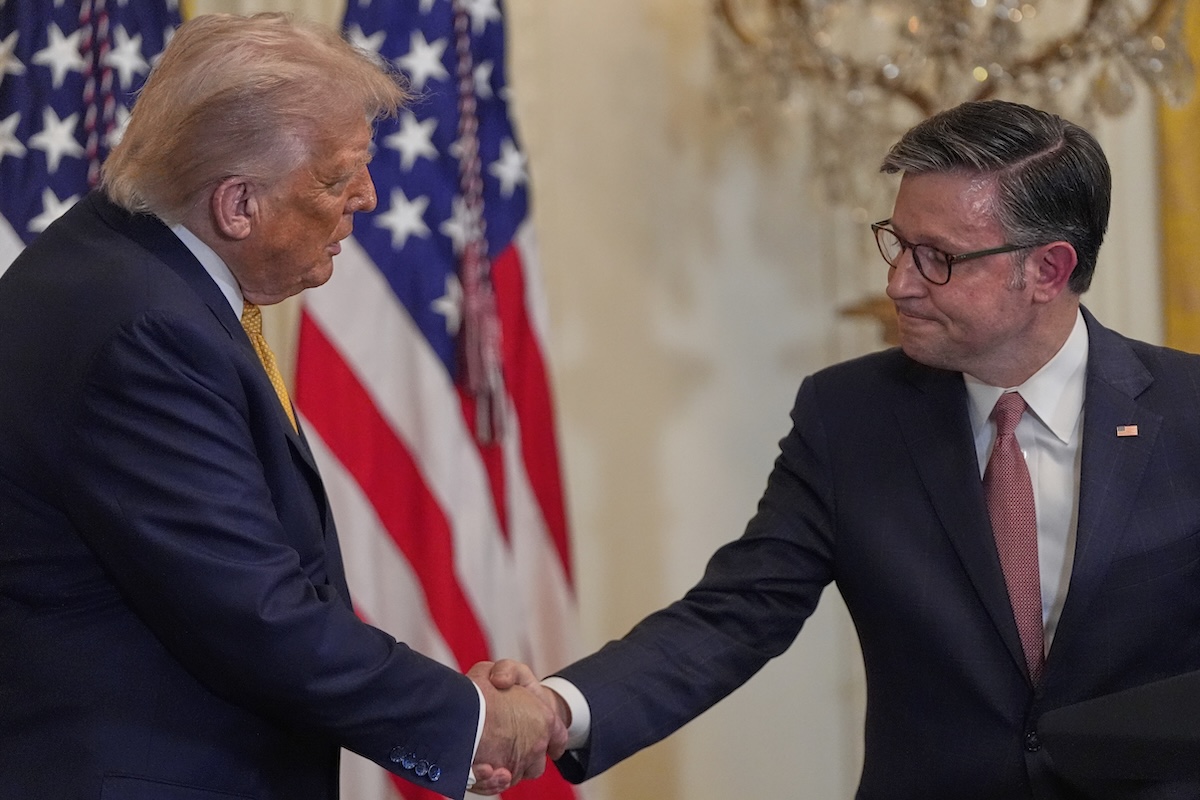GOP Memo Seeks End To Public Service Loan Forgiveness


Barely weeks after Republicans secured passage of the One Big Beautiful Bill Act, the Economic Policy Innovation Center (EPIC) is calling for a follow-up effort. Its memo, circulated among congressional staff, recommends that lawmakers use another reconciliation package to reshape parts of higher education and financial regulation. This comes after a House member announced a working group to explore another bill.
The group’s proposals include creating a new family savings account, fully defunding the CFPB, and eliminating Public Service Loan Forgiveness (PSLF), a program that forgives federal student loan debt for government and nonprofit workers after ten years of qualifying payments.
Supporters of the push are calling it “OBBBA 2.0,” positioning it as an extension of the first package, which was framed by Republicans as a landmark fiscal and cultural win. But the think tank’s ideas face procedural and legal barriers.
While the memo includes a wide range of proposals, when it comes to higher education reform, both PSLF and the CFPB are key targets.
The group calls for the elimination of the PSLF program, as well as fully defunding the CPFB. While there are currently proposed changes to the PSLF program, full termination of the program has not been a major focus before. Many in Congress view working in “public service” for 10 years before receiving some loan forgiveness a fair trade-off – especially considering public service jobs include government service, the military, police, fire, and teaching.
However, defunding the CFPB has been on the table multiple times – most recently in OBBBA 1.0. Many Republican lawmakers believe the CPFB is a regulatory overreach, and they tried to fully defund it once this year. However, that path was blocked by the Senate Parliamentarian.
It’s important to note that neither program can be dismantled through budget reconciliation. PSLF was established in 2007 under the College Cost Reduction and Access Act of 2007, and the CFPB was created in 2010 through the Dodd-Frank Act. Both are embedded in statute, which means only a new law passed by Congress — not a budget reconciliation bill — could repeal them.
That makes these provisions more of a policy ambition than a roadmap for actual legislation.
While some Republicans have embraced the idea of another reconciliation bill, many have been less enthusiastic. The first bill passed by a narrow margin and required extensive negotiation. Without the pressure of a debt ceiling crisis or other urgent trigger, several senators have questioned whether the political will exists to mount another effort.
Senator Mike Rounds of South Dakota summed up the hesitancy of another budget reconciliation bill before recess: “You have to have a reason to do it.”
Even within the House, some lawmakers are wary of revisiting divisive fights from the first package, particularly over higher education and social policy.
With an election year approaching, party leaders may prefer to focus on selling the accomplishments of the first bill rather than taking on another bruising legislative battle.
Despite what some on Reddit may say, the proposals from remain just that: a think tank memo. Programs like PSLF continue to operate normally, and borrowers working toward forgiveness should not expect any disruption. The same holds true for the CFPB, which continues its enforcement and regulatory work, even though it did see some of it’s budget slashed in the last round of legislation.
The memo’s release, however, underscores how education finance and federal oversight remain central flashpoints in Washington. While the chance of “OBBBA 2.0” advancing anytime soon appears slim, the rhetoric surrounding it may preview the policy debates of the coming election year.
Don’t Miss These Other Stories:

Many people use their phones to handle everyday tasks, from scheduling appointments to staying connected with family. Budgeting apps are...

Parent PLUS borrowing will be capped beginning July 1, 2026: up to $20,000 per student per year and $65,000 lifetime...

Advisors affiliated with independent broker/dealers often assume that “independence” is a destination rather than a spectrum. Yet, when frustration creeps...